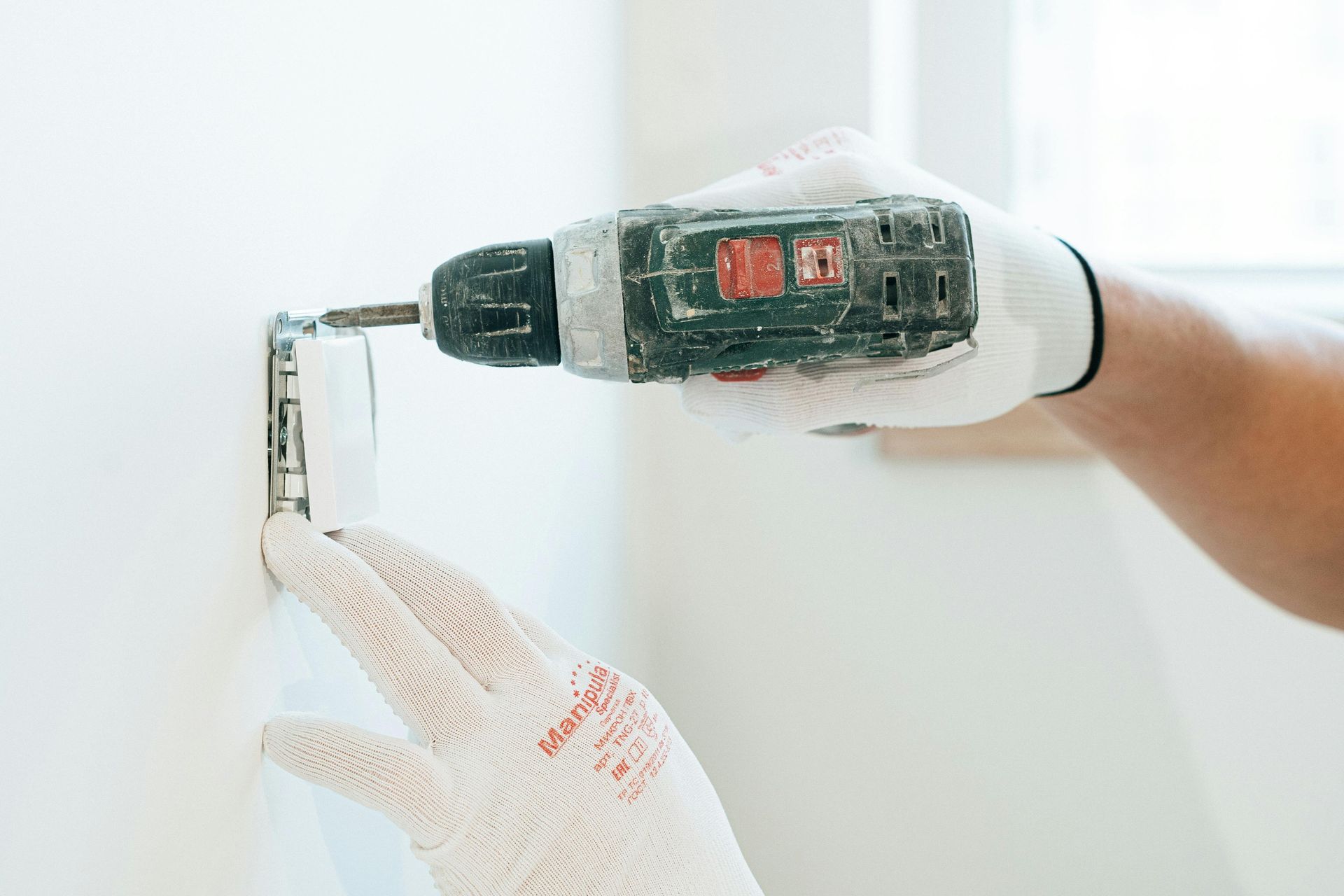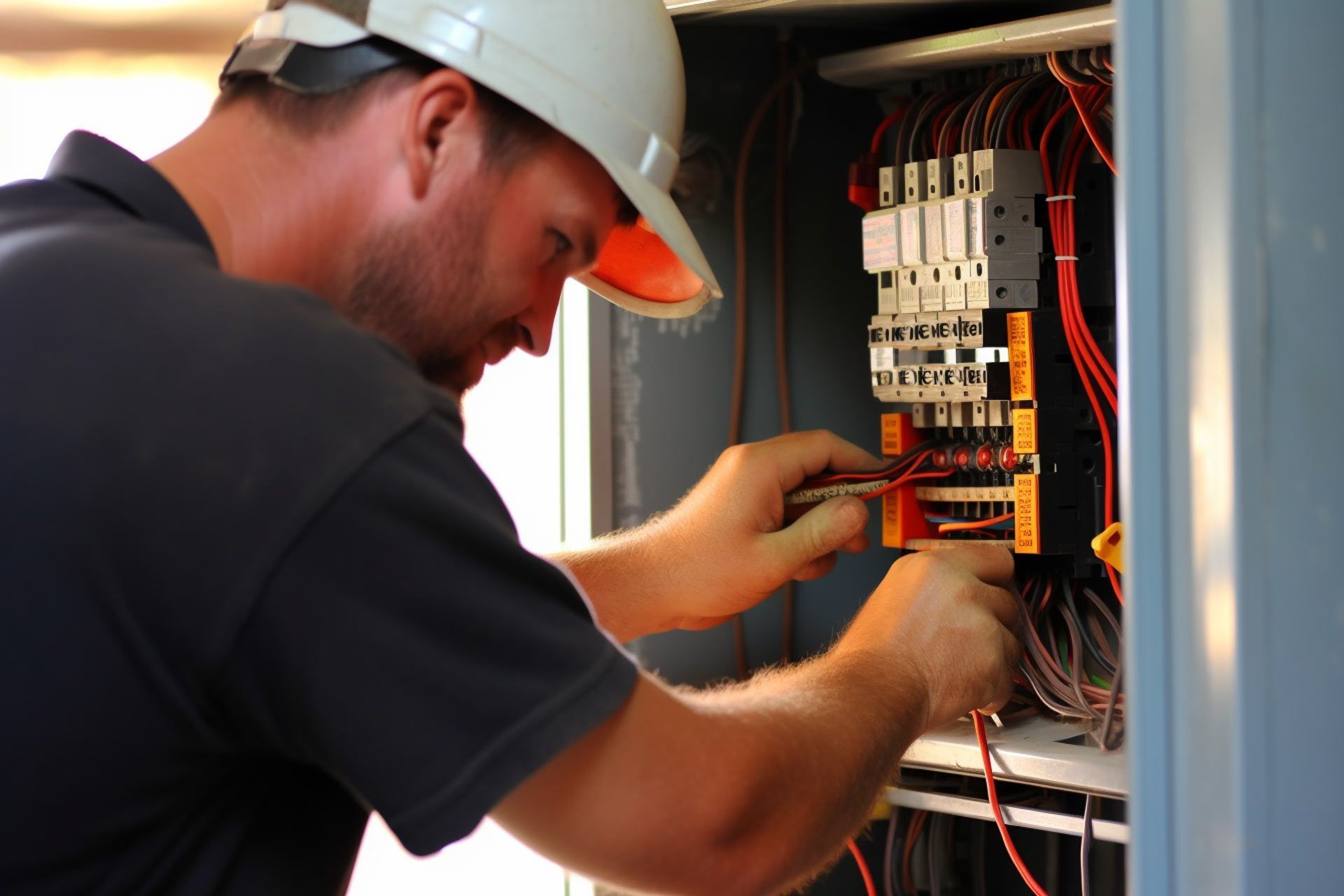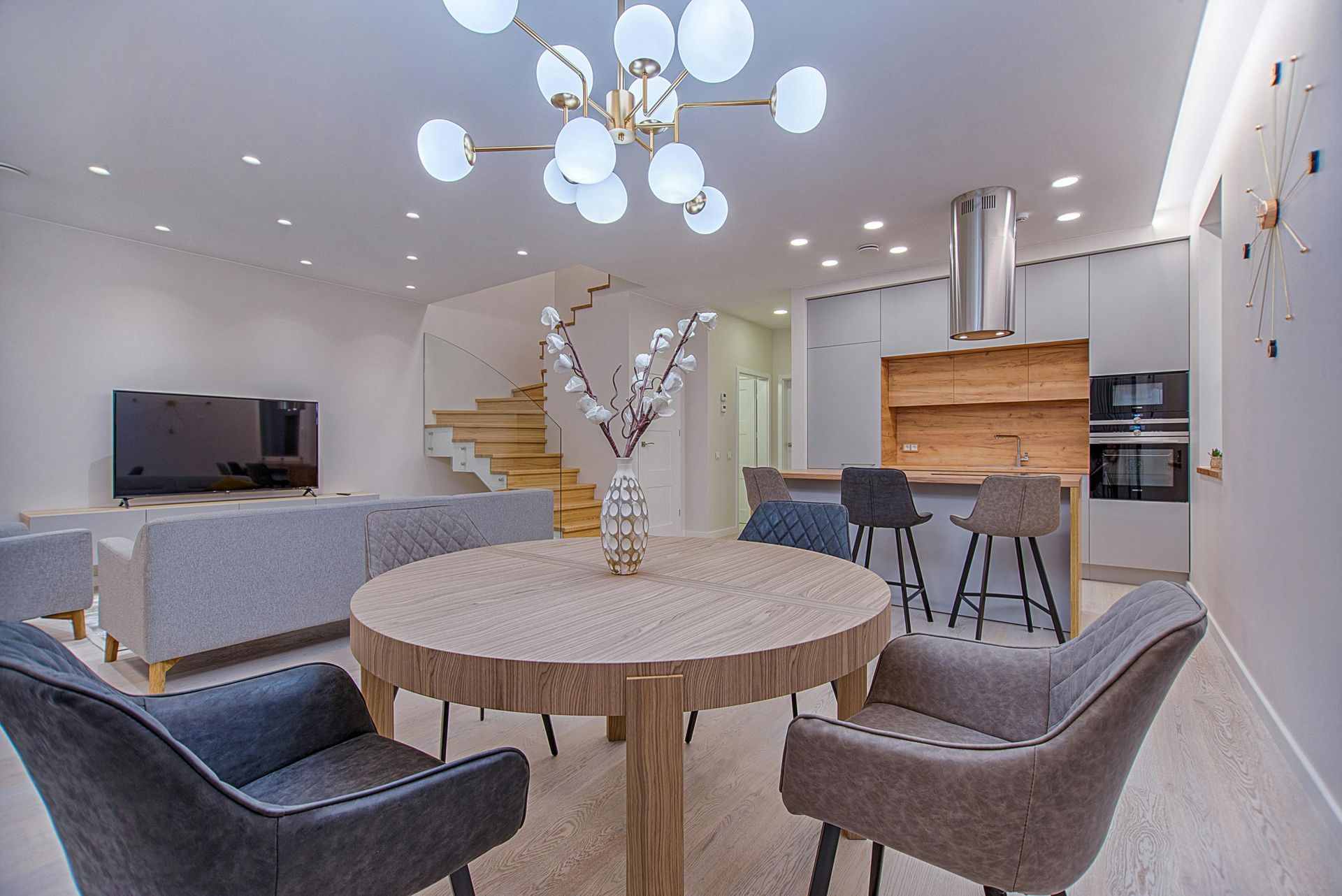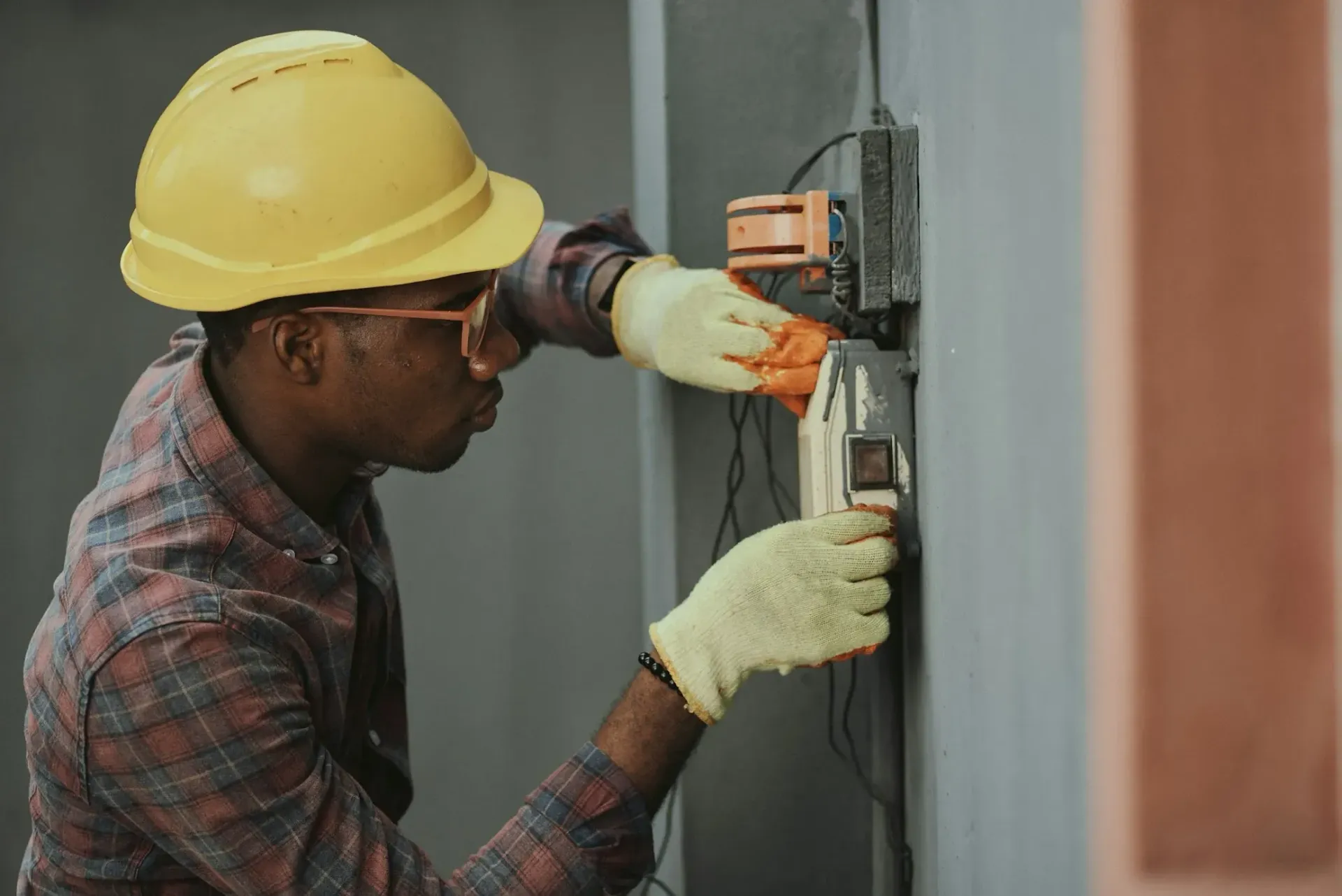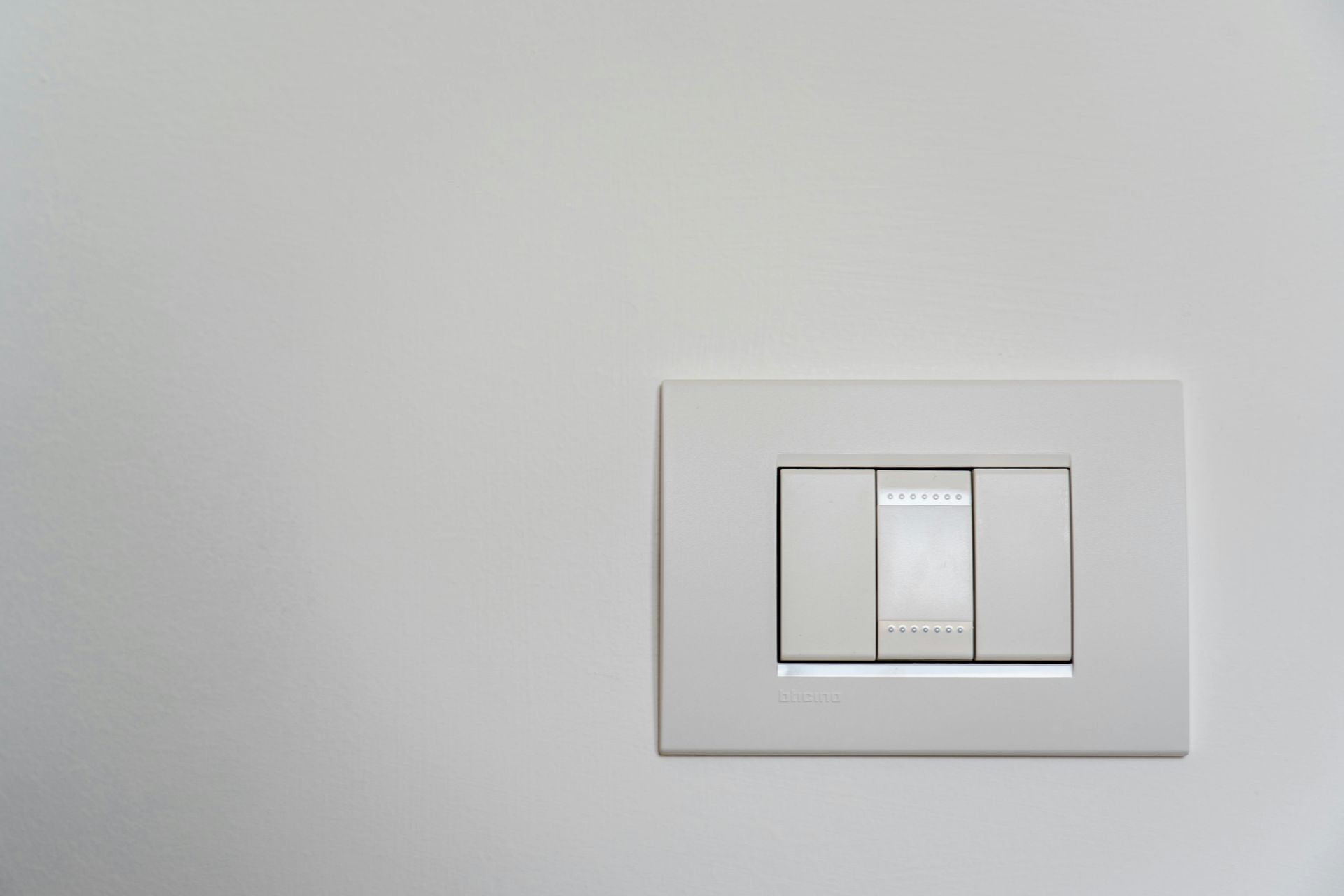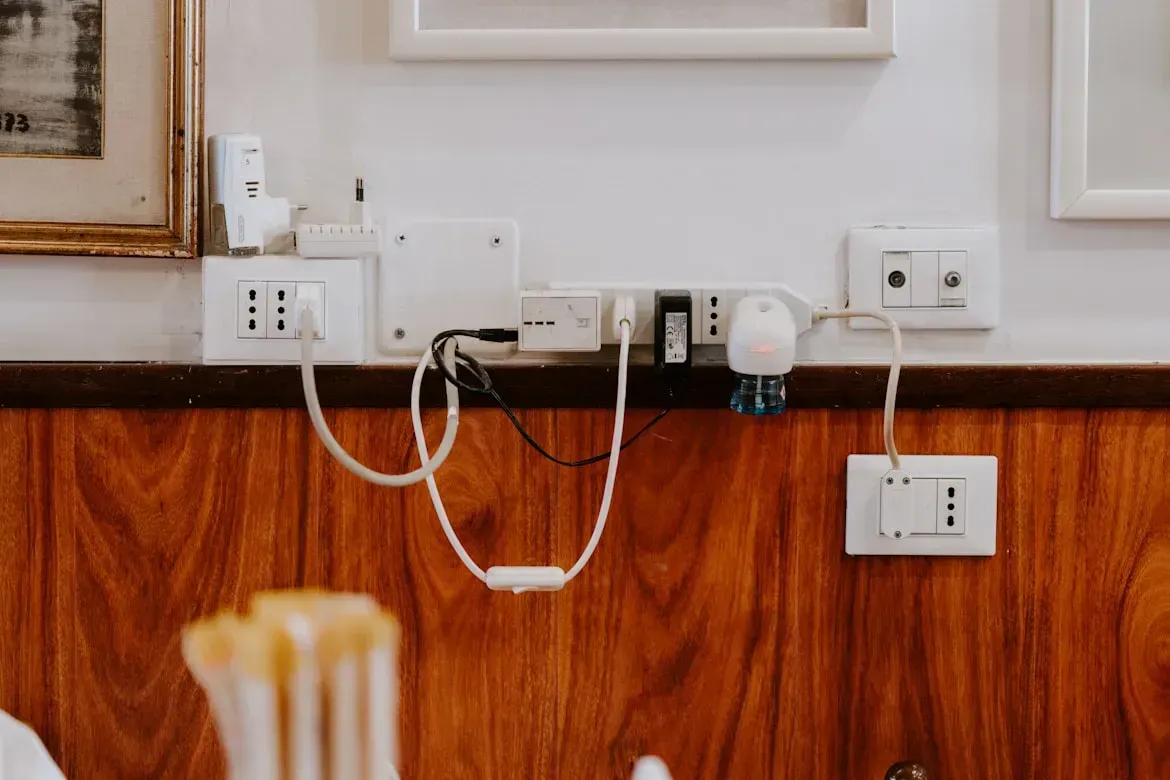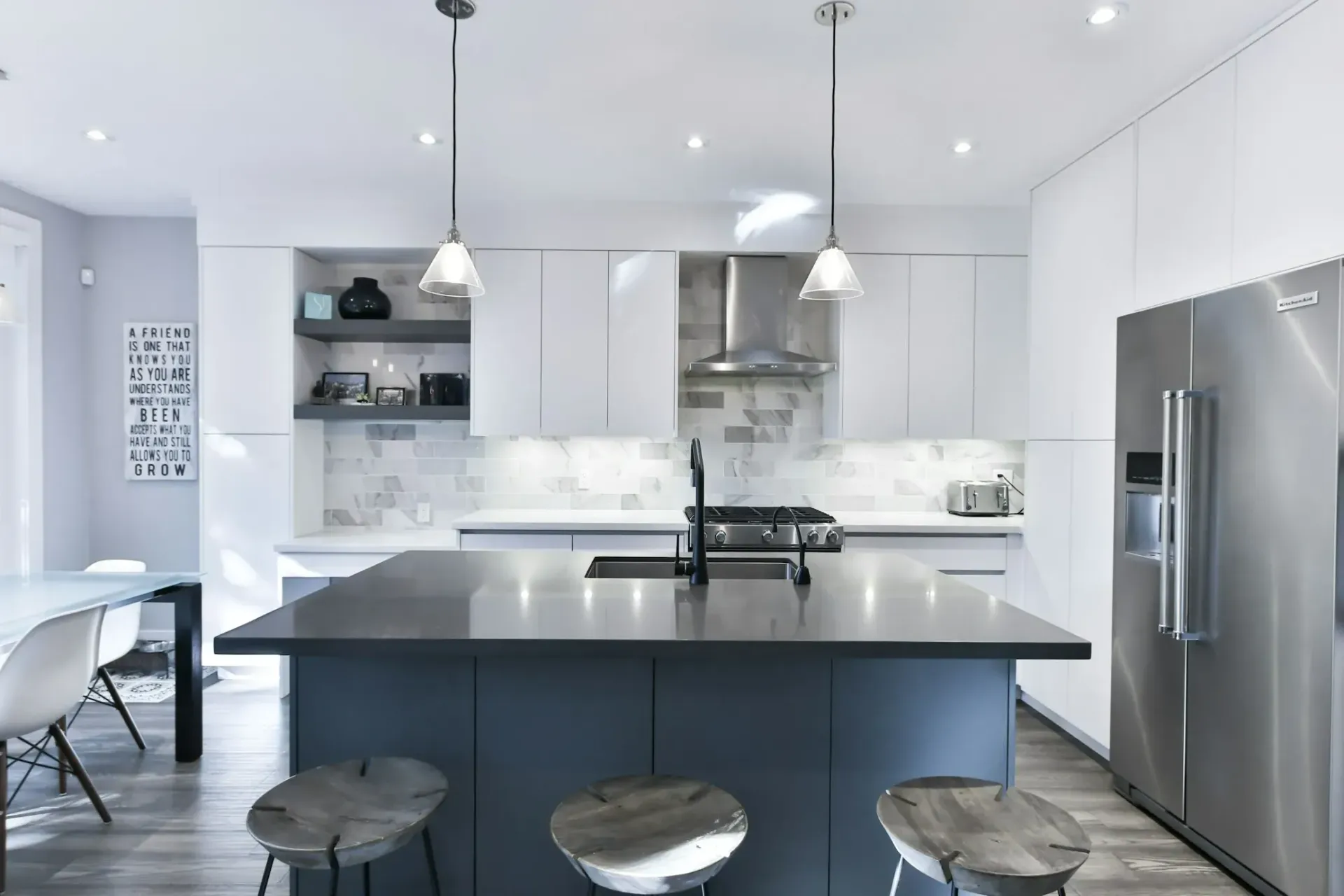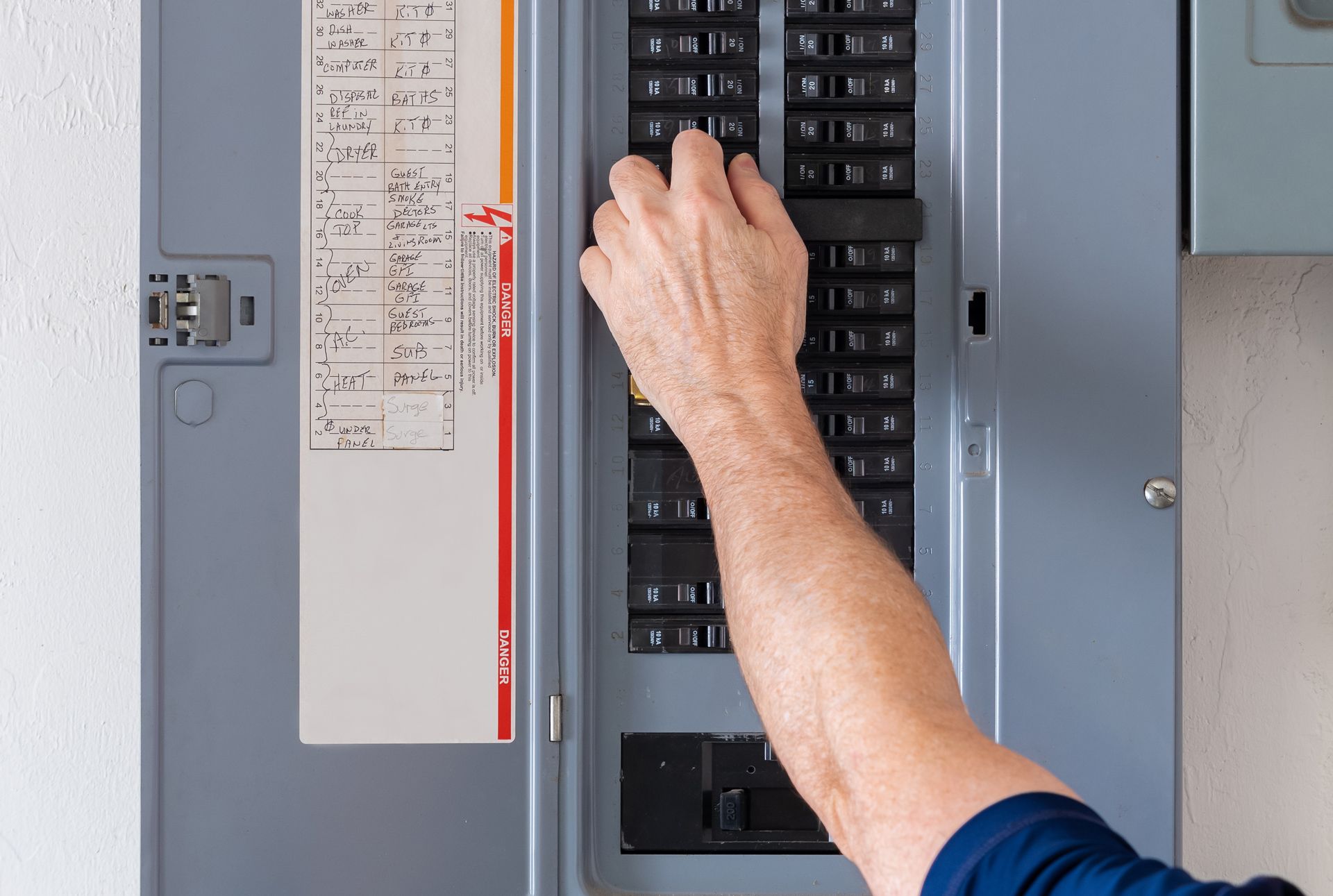
Is It Time to Upgrade Your Electrical Panel? Here’s How to Tell
Your electrical panel controls the power flowing through your home. It keeps your lights on, your appliances running, and your devices charged. But if your panel is outdated or overloaded, it could put your home at risk.
Flickering lights, tripping breakers, and burning smells aren’t just annoying—they’re warning signs. Ignoring them could lead to bigger problems, like electrical fires or costly repairs. Upgrading your panel isn’t just about fixing issues; it’s about keeping your home safe and ready for modern energy demands.
With more households adding electric vehicles, high-powered appliances, and smart home devices, an upgraded panel ensures your home can handle it all.
🔗 Not sure what electrical services you need? Check out Your Ultimate Guide to Professional Electrical Services in Utah for expert insights.
How Your Electrical Panel Works
Your electrical panel is the command center of your home’s power system. It distributes electricity from the utility company to different circuits in your house. Every time you turn on a light, charge your phone, or run an appliance, your panel controls the flow of electricity to keep everything running smoothly.
What Happens Inside the Panel?
- Main Breaker: This switch controls all the power coming into your home. If it trips, everything shuts off.
- Circuit Breakers: These smaller switches control power to different parts of your house. If a circuit gets overloaded, the breaker trips to prevent overheating and fires.
- Wiring and Bus Bars: These internal components safely route electricity to each circuit.
Why an Outdated Panel Becomes a Problem
Older panels weren’t built for today’s energy demands. If your home still runs on a panel from the ‘80s or earlier, it may not have the capacity to handle modern appliances, electric vehicles, or even multiple devices running at once.
An outdated panel can cause:
- Frequent breaker trips – The panel can’t handle the load.
- Flickering lights – Your circuits are overworked.
- Burning smells or buzzing sounds – This could mean overheating or faulty wiring.
- Outdated fuse boxes – Old fuse systems don’t trip safely like modern circuit breakers.
If you’re experiencing any of these issues, your panel might be due for an upgrade. Let’s go over the key signs that tell you it’s time to replace it.
Signs Your Electrical Panel Is Outdated
Not all electrical problems are obvious, but your panel will show warning signs when it’s struggling to keep up. Ignoring these signs could put your home at risk for electrical fires, power failures, and expensive repairs. If you notice any of the following issues, it may be time for an upgrade.
1. Your Circuit Breakers Keep Tripping
Circuit breakers trip when there’s too much electricity flowing through a circuit. This prevents overheating and fire hazards. If your breakers trip occasionally, that’s normal. But if it’s happening often—especially when you run multiple appliances—it’s a sign your panel is overloaded.
2. Your Lights Flicker or Dim Randomly
If your lights flicker when you turn on appliances like the microwave, washing machine, or air conditioner, your electrical panel may not be supplying enough power. This happens when circuits share too much of the load, and it’s a sign your system needs an upgrade.
3. Your Panel Feels Hot or Has a Burning Smell
Your electrical panel should never feel warm. Heat or a burning smell coming from the panel means there’s an internal problem, like loose wiring or overloaded circuits. This is a serious fire hazard that needs immediate attention.
4. You Still Have a Fuse Box Instead of a Circuit Breaker Panel
Fuse boxes were common in homes built before the 1960s, but they’re outdated and unsafe by today’s standards. Unlike modern circuit breakers, fuses don’t trip when overloaded. Instead, they burn out, which can lead to overheating and electrical fires.
5. Your Home Uses a 100-Amp Panel or Lower
Older homes were built with 60-amp or 100-amp panels, which were fine when electrical needs were lower. But today’s homes need at least 200 amps to power modern appliances, HVAC systems, and electric vehicle chargers. If your panel is rated at 100 amps or lower, it may not be enough to support your household’s energy needs.
6. You’re Upgrading Your Home with New Appliances or Smart Devices
If you’re adding a hot tub, electric vehicle charger, or high-powered kitchen appliances, your current panel might not have enough capacity. Before making major upgrades, check whether your panel can handle the extra load.
7. Your Panel Is Over 25 Years Old
Electrical panels typically last 25 to 40 years, but technology and safety standards change over time. If your panel is more than 25 years old, have an electrician inspect it to determine if it meets current safety codes and energy demands.
If any of these signs sound familiar, an electrical panel upgrade could be the best way to improve your home’s safety and efficiency. Next, let’s go over the benefits of upgrading to a modern panel.
Benefits of Upgrading Your Electrical Panel
Upgrading your electrical panel isn’t just about fixing problems—it’s about making your home safer, more efficient, and ready for the future. A modern panel ensures your electrical system can handle today’s power demands without the risk of overloads or failures. Here’s what you gain from an upgrade.
1. Improved Electrical Safety
An outdated panel increases the risk of electrical fires, shocks, and overloaded circuits. Upgrading to a modern panel with updated circuit breakers reduces these risks and provides better protection for your home and family.
2. Fewer Power Interruptions
If you’re tired of resetting breakers or dealing with flickering lights, a new panel can solve these issues. A properly sized panel distributes electricity evenly, preventing frequent trips and voltage fluctuations.
3. Increased Home Value
A modern electrical panel makes your home more attractive to buyers. Potential homeowners want a house that’s up to code and ready to support modern technology. If you plan to sell, upgrading your panel could be a strong selling point.
4. More Power for Appliances and Devices
From high-powered kitchen appliances to electric vehicle chargers, today’s homes use more electricity than ever. A new panel ensures your home can handle these energy demands without overloading the system.
5. Lower Energy Costs
An overloaded or outdated panel can cause inefficiencies in your electrical system, leading to wasted energy. A properly functioning panel distributes power more effectively, reducing unnecessary energy consumption and lowering your monthly bills.
6. Compliance with Modern Electrical Codes
Electrical codes change over time to improve safety and efficiency. If your panel is outdated, it may not meet current standards. Upgrading ensures your home is compliant with the latest regulations, which is especially important if you’re planning renovations or selling your home.
7. Supports Future Home Upgrades
Thinking about adding smart home devices, a home office setup, or a solar panel system? A new electrical panel gives you the capacity to expand your home’s electrical capabilities without worrying about overloads or safety hazards.
An upgraded panel is a long-term investment in your home’s safety and performance. Next, we’ll walk through what to expect during an electrical panel replacement so you can plan ahead.
What to Expect During an Electrical Panel Replacement
Upgrading your electrical panel is a major improvement, but it’s not as complicated as you might think. A licensed electrician can handle the entire process, ensuring everything meets safety codes and functions properly. Here’s what to expect when replacing your panel.
1. Initial Electrical Inspection
Before starting the upgrade, an electrician will assess your current panel, wiring, and overall electrical system. They’ll check for outdated components, overloaded circuits, and potential safety hazards. Based on this inspection, they’ll recommend the right panel size and type for your home.
2. Choosing the Right Panel Size
Most modern homes need a 200-amp panel, but some may require up to 400 amps, depending on energy demands. If you have an electric vehicle, a large HVAC system, or plan to expand your home’s electrical needs, your electrician will ensure your new panel has enough capacity.
3. Obtaining Permits and Compliance Checks
Electrical panel upgrades must comply with local building codes and safety regulations. Your electrician will secure the necessary permits and schedule inspections to make sure everything is up to code.
4. Power Shutoff and Panel Removal
On the day of installation, your home’s power will be temporarily turned off. The electrician will then disconnect and remove the old panel, ensuring all wires are safely managed before installing the new system.
5. Installing the New Panel
The new panel is mounted and wired into your home’s electrical system. This step includes:
- Connecting breakers to the appropriate circuits.
- Labeling circuits for easy identification.
- Testing the connections to ensure everything is working properly.
6. Final Inspection and Power Restoration
Once the installation is complete, an inspector may need to verify that the panel meets safety standards. After approval, the electrician will restore power to your home and conduct a final check to confirm that everything is operating smoothly.
7. Timeframe and Costs
A panel upgrade typically takes 4 to 8 hours, depending on the complexity of the installation. Costs vary based on panel size, labor, and permit fees, but most homeowners can expect to pay between $1,500 and $4,000 for a standard upgrade.
With your new panel installed, your home will be safer, more efficient, and ready to handle modern energy demands. Next, let’s go over some common questions homeowners have about electrical panel upgrades.
Why Hire a Professional for Your Electrical Panel Upgrade
Upgrading an electrical panel is not a DIY job. It requires expert knowledge, precision, and strict adherence to safety codes. A licensed electrician ensures the job is done correctly and safely while protecting your home from future electrical issues.
1. Safety First: Avoid Fire and Shock Hazards
Working with high-voltage electricity is dangerous. A single wiring mistake could lead to electrical fires, shocks, or even system failures. A professional electrician knows how to handle the installation safely while following the correct procedures.
2. Compliance with Electrical Codes and Regulations
Electrical work must meet National Electrical Code (NEC) standards and local building codes. A licensed electrician will obtain the necessary permits and ensure the installation passes all required inspections. This keeps your home legal, safe, and up to standard.
3. Proper Panel Sizing and Installation
An expert will evaluate your home’s electrical needs and recommend the right panel size to support your appliances, HVAC system, and future upgrades. This prevents overloading and ensures your system runs efficiently.
4. Avoid Costly Mistakes and Future Repairs
An improperly installed panel can lead to frequent breaker trips, overloaded circuits, or even total system failure. Hiring a professional prevents these issues, saving you from expensive repairs down the road.
5. Protect Your Home’s Insurance and Resale Value
DIY electrical work or installations done without a permit can void your homeowner’s insurance. If an electrical fire or other issue occurs due to improper installation, your insurance company may refuse to cover the damages. A professional upgrade protects your investment and maintains your home’s value.
6. Warranty and Peace of Mind
Most licensed electricians provide warranties on their work, ensuring your panel functions correctly for years. If an issue arises after installation, you’ll have professional support to fix it.
An electrical panel upgrade is an investment in safety, efficiency, and the future of your home’s power system. Next, let’s wrap up with a final summary and how you can take the next step toward upgrading your panel.
Upgrade Your Electrical Panel for a Safer, More Reliable Home
Your electrical panel is the backbone of your home’s power system. If it’s outdated, overloaded, or showing signs of wear, an upgrade isn’t just a smart choice—it’s a necessary one. A modern panel improves safety, prevents power disruptions, and ensures your home can handle today’s electrical demands, from high-powered appliances to electric car chargers. Plus, it keeps your system up to code and protects your property’s value.
At Bar H Bar Electric, we specialize in professional electrical panel upgrades, repairs, wiring, and installations throughout Lehi, American Fork, Pleasant Grove, Sandy, Draper, St. George, Hurricane, Cedar City, and Washington. Whether you need a full panel replacement, interior lighting installation, outlet upgrades, or spa hookups, our licensed electricians deliver safe, reliable, and code-compliant solutions. Don’t wait until electrical issues become serious—contact Bar H Bar Electric today for expert service and a safer home.
Phone
Utah County: (480) 686-2115
St George: (480) 686-5978
Hour of Service
- Mon - Fri
- -
- Sat - Sun
- Closed
